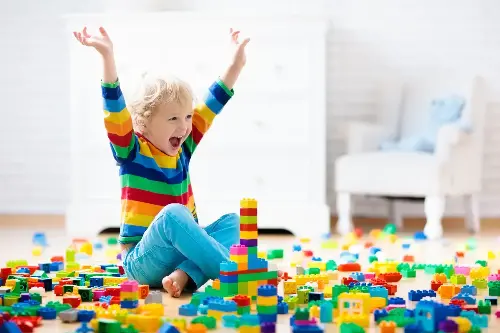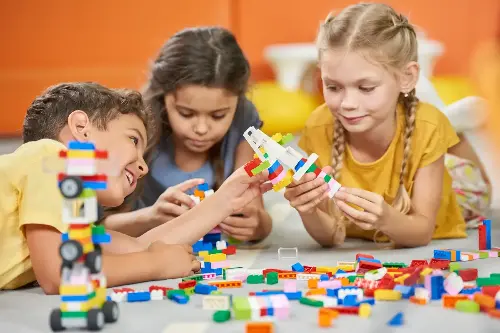In the midst of the modern world’s hustle and bustle, where academic achievements often take centre stage in the parenting playbook, a crucial component of child development sometimes plays second fiddle: the art of play. Encouraging play in children is not merely a luxury for the times when the homework is done. Rather, it's an essential ingredient for holistic development, as important as academic study, if not more so.
The Pivotal Role of Play

Research has consistently shown that play is far from frivolous; it's the foundation upon which children develop a myriad of skills. Through play, children learn problem-solving, develop their creativity, and improve their communication abilities. The play offers a unique space where children can experiment, explore, and encounter the limitless boundaries of imagination, all of which foster cognitive and emotional growth.
Physical play, such as running, jumping, and climbing, refines motor skills and promotes physical health, reducing the risk of obesity and associated conditions. Meanwhile, social play boosts emotional intelligence, helping children navigate relationships and understand the complexities of social norms and cues.
Unlocking Creativity and Innovation
In the sandbox and on the playmat, tomorrow's innovators are born. Play nurtures creativity by providing children a venue where rules can be bent and reality suspended. This sparks innovative thinking and the kind of out-of-the-box problem-solving that’s cherished in adult life. Creative play can take many forms, from building intricate worlds with blocks to crafting stories populated with fantastical characters. This isn't just a child's play; it's preparation for future creative endeavours in all spheres of life.
Bolstering Emotional and Social Development

Through play, children learn to deal with their emotions and to understand those of others. They develop empathy by engaging in roles during pretend play. Through games with rules, children come to comprehend fairness and the importance of following guidelines while also learning how to lose and win gracefully.
Furthermore, play is a natural stress reliever. It’s a time when children can let off steam and cope with the pressures of growing up. The act of playing can be both a refuge and a tool for children to manage anxiety and stress, contributing positively to their mental health and overall wellbeing.
Encouraging Language and Communication Skills
Playful interactions are a hotbed for language development. As children chit-chat with playmates or direct their make-believe companions, they’re practicing conversation skills. They learn new words and how to use language to express themselves, negotiate, and collaborate. For younger children, play is key to developing their early language abilities, which are vital for literacy and broader academic success.
Strengthening Family Bonds

Family playtime isn't just for creating memories; it’s an avenue for children to bond with their caregivers. This can be as simple as a family board game night or a trip to the park. Parents engaging in play with their children show them that they are valued and loved, providing a sense of security and belonging. Moreover, it presents opportunities for parents to model social interactions and guide their children in learning new tasks and skills.
Balancing Academics and Play
With mounting academic pressures, finding the balance between study and play can be challenging. However, experts caution against an all-work-no-play approach to child rearing. Integrating play into daily routines is crucial and can even enhance academic learning. For example, educational games and playful learning methods can make acquiring new concepts less daunting and more engaging for children.
Respecting Individual Differences in Play
It’s important to recognise that children have different play preferences. Some may gravitate towards physical, rough-and-tumble activities, while others might prefer quiet, contemplative play. Both are valid and beneficial. Giving children autonomy over their play choices encourages a sense of self and self-motivation.
In conclusion, play is a critical element of child development that should be encouraged alongside academics. It facilitates a range of developmental milestones, from physical fitness to emotional resilience, creativity to communication skills. By valuing and incorporating play into our children's lives, we help them grow into well-rounded, capable, and happy individuals. Play is the work of childhood, as the adage goes, and it’s through this work that children learn the most about the world and themselves. Embrace the playful spirit—it's more than just child's play; it's a blueprint for a thriving future.
